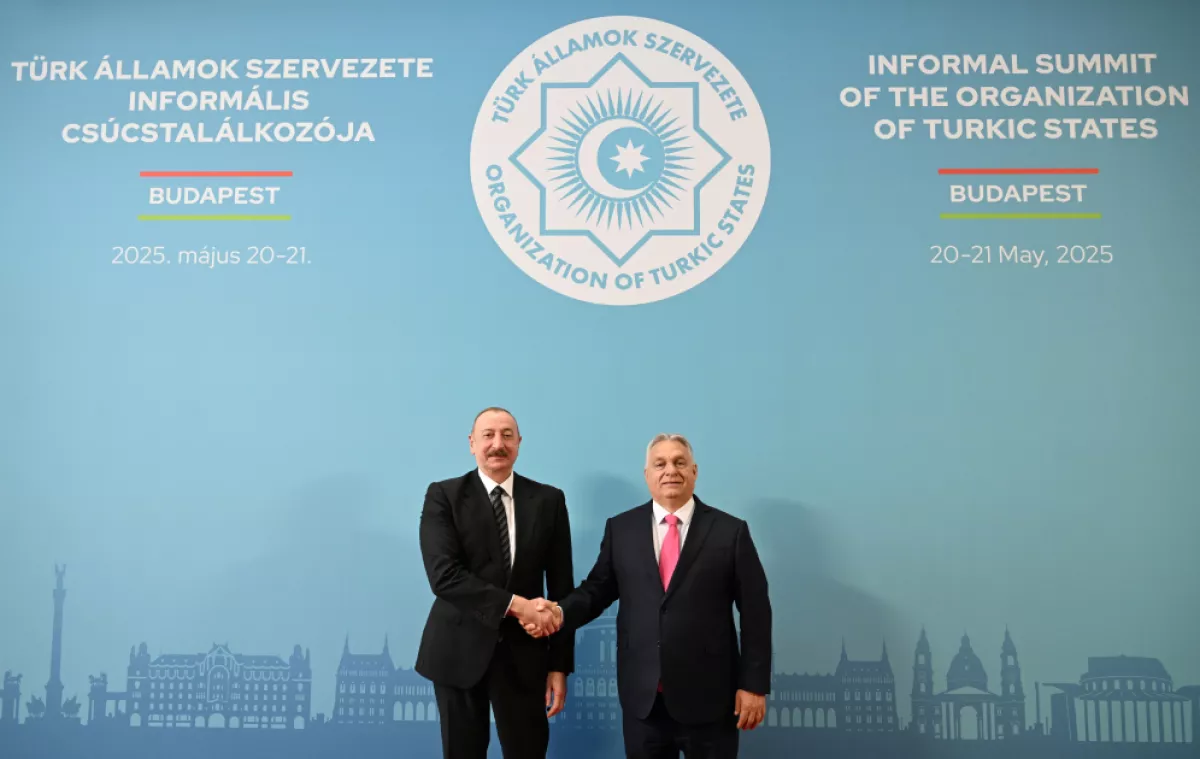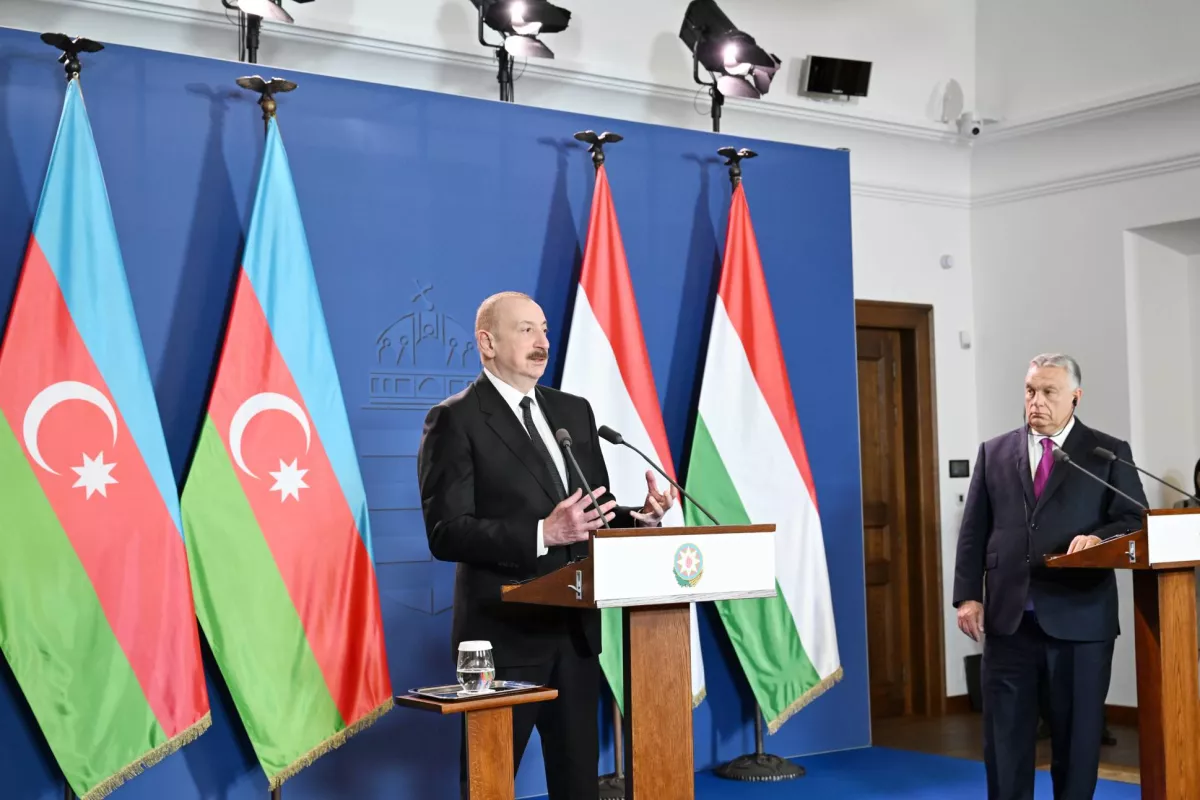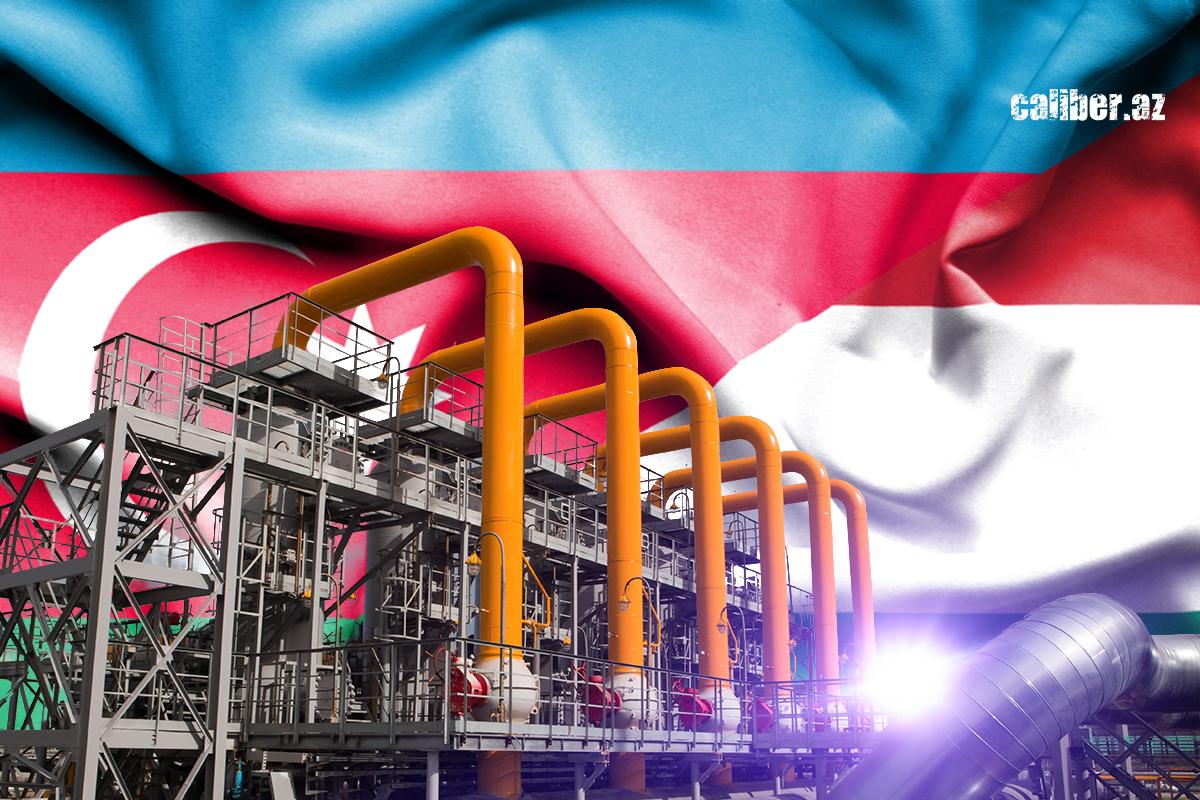Azerbaijan, Hungary, and energy partnership A winning combo in oil, gas, and renewables
The successfully developing Azerbaijani-Hungarian cooperation in the energy sector was further strengthened last year with large-scale investments in Azerbaijan’s gas extraction industry. At the same time, Baku and Budapest are seeking to diversify their trade and economic relations by expanding investment in the non-oil sector. Hungarian companies plan to increase their involvement in joint projects in the food and agricultural sectors, in the field of green energy, and are participating in initiatives for the reconstruction of Karabakh, as well as the major Black Sea Energy project. Another effective platform for developing business ties is the Organisation of Turkic States (OTS): on the eve of the current informal OTS summit in Budapest, the President of Azerbaijan, Ilham Aliyev, arrived in the Hungarian capital on a working visit.
The high level of mutual understanding between Baku and Budapest, along with a steady political dialogue on key global issues, has for many years contributed to the development of business discourse—both bilaterally and multilaterally. As a member of the EU and NATO, Hungary also stands as a strong advocate of comprehensive cooperation with Azerbaijan, the Central Asian states, and Türkiye. Hungarian companies and state institutions, particularly within the framework of the Organisation of Turkic States (OTS), are actively advancing partnerships related to the development of the Middle Corridor, as well as various initiatives in the transport and energy sectors.

The successes of Azerbaijani-Hungarian energy cooperation were highlighted by President of Azerbaijan Ilham Aliyev during a joint press statement with Hungarian Prime Minister Viktor Orbán.
“We are successfully cooperating in the energy sector. Hungarian companies have stakes in two major oil and gas projects in Azerbaijan - the Azeri-Chirag-Guneshli and Shah Deniz fields. The next contract will be signed early next year. We also exchanged views on this today. A Hungarian company will begin operating in the onshore oil fields of Azerbaijan,” President Ilham Aliyev noted. “We have been exporting natural gas to Hungary since last year. I noted today, and the Prime Minister noted here too, that we can arrange gas supply at the level of Hungary's demand.”

It is worth recalling that a major breakthrough in Azerbaijani-Hungarian business relations took place in 2019, when the Hungarian energy company MOL Group became the third-largest investor in the consortium developing the Azeri-Chirag-Gunashli (ACG) oil field block, acquiring a 9.57% stake from the multinational company Chevron. In April 2020, MOL Group also acquired an 8.9% share in the Baku-Tbilisi-Ceyhan oil pipeline. As a result, the company’s total investments in Azerbaijan’s energy sector at the time reached $2 billion.
Investment cooperation in the oil and gas sector continued last year: Hungary’s foreign direct investment (FDI) in Azerbaijan’s economy amounted to $1.018 billion, with Hungarian capital now accounting for 14.5% of total FDI in the country. Notably, a significant portion of this investment was tied to the contract signed on June 5, 2024, with the MVM Group for the acquisition of a stake in the Shah Deniz gas condensate field project.
The next step in this investment trajectory came with the signing of an agreement on September 20, 2024, between MOL Group and Azerbaijani partners for the exploration, development, and gas production at the onshore Shamakhi-Gobustan block.
Baku and Budapest are also actively cooperating in the supply of natural gas via the Southern Gas Corridor (SGC) pipeline network. On June 2, 2023, a contract was signed between Azerbaijan’s State Oil Company (SOCAR) and the MVM Group for the delivery of 100 million cubic metres of natural gas. Following the construction of the Niš–Dimitrovgrad Interconnector (Bulgaria-Serbia Interconnector Gas Pipeline, IBS), a technical opportunity was created for the export of significantly larger volumes of Azerbaijani gas to Hungary.
At the same time, Hungary’s FGSZ and Azerbaijan’s SOCAR, together with the relevant authorities of Bulgaria, Slovakia, and Romania, have for the second year been cooperating within the framework of the upgraded “Solidarity Ring” (STRING) system. This initiative is aimed at delivering additional volumes of natural gas through the SGC to Southern and Eastern Europe.
Within the STRING system, Hungary plays a key role, possessing the largest gas storage capacities in the region. This positions the country as a crucial regional gas hub for the import of Azerbaijani gas into the European Union.
“A war has been going on in Hungary's neighboring country for three years now. To date, the losses to the Hungarian economy have exceeded 20 billion euros…Without the support of the Turkic-speaking states, it would be very difficult for us to ensure our energy security today,” Hungarian Prime Minister Viktor Orbán told the media on the eve of the summit. “Azerbaijan has assured us that we will be supplied with the necessary amount of gas..”
The Prime Minister also emphasised that MVM and other Hungarian companies will be able to increase their shares in oil and gas fields and pipelines in Azerbaijan. “This is important not only from an economic point of view, but also from a purely moral point of view. Thanks to this friendship, we feel less vulnerable,” Orbán added.
President Ilham Aliyev, for his part, noted: “We are also working with Hungary on green energy. Azerbaijan has a very large-scale green energy agenda. We will produce 6,000 megawatts of green energy over the next five years. Over the past two years, 500 megawatts have been created, 6,000 megawatts will be provided over the next five years. I am stating all these figures based on contracts, that is, these are projects that will be implemented. Thus, these projects alone will enable us to save about 3-4 billion cubic meters of gas, the main destination of which, of course, will be Türkiye and European countries.”

It is worth recalling that Baku and Budapest are partners—alongside Georgia and Romania—in the implementation of the joint “Green Energy Corridor” project, which envisions the construction of the Black Sea Energy underwater power cable. This 1,195 km-long cable, with a capacity of 1 GW, will run along the seabed of the Black Sea. According to preliminary estimates, it will enable the annual transmission of up to four gigawatts of green electricity.
The ministerial meeting held in Budapest in March marked an important milestone in advancing this initiative, which is being implemented by the newly established Green Energy Corridor Power Company. It is expected that by the end of this year, the Italian consultancy firm CESI will complete the project’s feasibility study.
As commercialisation decisions are taken, the project could, by around 2027, be included in the EU’s list of Projects of Mutual/Community Interest (PMI/PCI), with a potential financing allocation of up to €2.3 billion.
The partnership between Baku and Budapest in the development of renewable energy sources (RES) extends to several other areas, including the creation of infrastructure for storing the energy produced from renewables. Recently, representatives of the Hungarian Battery Association held negotiations with a SOCAR subsidiary operating in the field of green energy.
A year ago, Hungarian companies were invited to participate in an auction for the construction of a 100 MW solar power facility in one of Baku’s districts.
Azerbaijan and Hungary are actively increasing their trade turnover: in 2023, mutual trade reached a record high of $200 million, with growth accelerating by 29% last year and a further 11.7% increase in the first quarter of 2025. Hungarian companies are very active in sectors such as trade and services, transportation, and industry. Currently, about two dozen Hungarian firms, primarily pharmaceutical companies, operate actively in Azerbaijan.
In 2022, a Memorandum of Understanding was signed between the Alat Free Economic Zone (FEZ) and the Hungarian Export Promotion Agency, and a joint project is currently underway in this FEZ. The Hungarian group Hell Energy, with participation from the Azerbaijan Investment Company (AIC), is constructing a factory in the Alat zone to produce 700–800 million aluminium beverage cans annually. This $211 million project is expected to create over 330 jobs.
Looking further ahead, another Azerbaijani-Hungarian manufacturing initiative may be the implementation of a bus assembly project. Hungarian businesses are also involved in projects aimed at revitalising the Karabakh region. For example, the Hungarian holding KESZ Group is building residential homes to accommodate approximately 6,000 people in the village of Soltanly in the Jabrayil district, which was liberated from occupation. Additionally, a school is planned for construction in this village with financial support from the Hungarian government.








